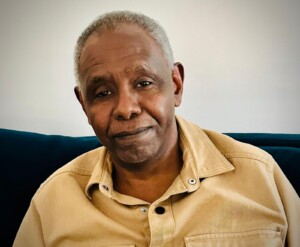Call for Sudan to release man accused of apostasy
A Sudanese man who applied to have the civil registry reflect him as ‘non-religious’ rather than ‘Muslim’ has been arrested under the country’s draconian apostasy legislation. Dozens of lawyers, politicians, and activists are calling for his release.
A Sudanese man who applied to have the civil registry reflect him as ‘non-religious’ rather than ‘Muslim’ has been arrested under the country’s draconian apostasy legislation. Dozens of lawyers, politicians, and activists are calling for his release.
When 23-year-old Mohamed Abdelbagi filed an application to the Omdurman court on May 8 to change his religion in the civil registry, the security services arrested him in response to a complaint of apostasy under article 126 of the Sudanese Criminal Code. The charge carries a maximum penalty of death.
Dozens of activists, politicians and lawyers have begun drafting a statement of solidarity with Abdelbagi, which is still being signed.
The statement expresses the deep concern of the signatories about the damage or harm that could be caused to Abdelbagi while under arrest.
'…freedom of thought, opinion, conscience, and belief is one of the fundamental freedoms of the human being, which no power, whatsoever, has any constitutional justification or a legal justification to prejudice or violate…'
The statement stressed the conviction of the signatories that freedom of thought, opinion, conscience, and belief is one of the fundamental freedoms of the human being, which no power, whatsoever, has any constitutional justification or a legal justification to prejudice or violate.
The statement reiterated its demand to repeal article 126 and not to subject any individual or group to the wording of the text, which punishes violators by death. “This is because the text of article 126 contravenes article 38 of the Interim Constitution of 2005 and article 18 of the International Covenant on Civil and Political Rights of 1966.”
The statement called on the Sudanese authorities to immediately release of Abdelbagi, without any criminal, civil or administrative consequences that may affect his life, liberty, property or any other constitutional rights.
Death penalty
Article 126 of the Sudanese Criminal Code stipulates execution of any Muslim “who publicly leaves or promotes leaving Islam by categorically evident word or act”.
A clause has recently been added to the article, which considered “insulting the Sahaba” (the companions, disciples, scribes, and family of the prophet Mohamed) as an apostasy.
A human rights activist lawyer told Radio Dabanga that there was a contradiction between the so-called apostasy and article 18 of the Human Rights Charter, which states: “Everyone has the right to freedom of thought, conscience and religion; which includes freedom to change religion or belief, such as in education, practice, or the freedom to express it whether in secret or in the community).
He added that it also contradicts the jurisprudence of many enlightened Islamic scholars and thinkers.











 and then
and then